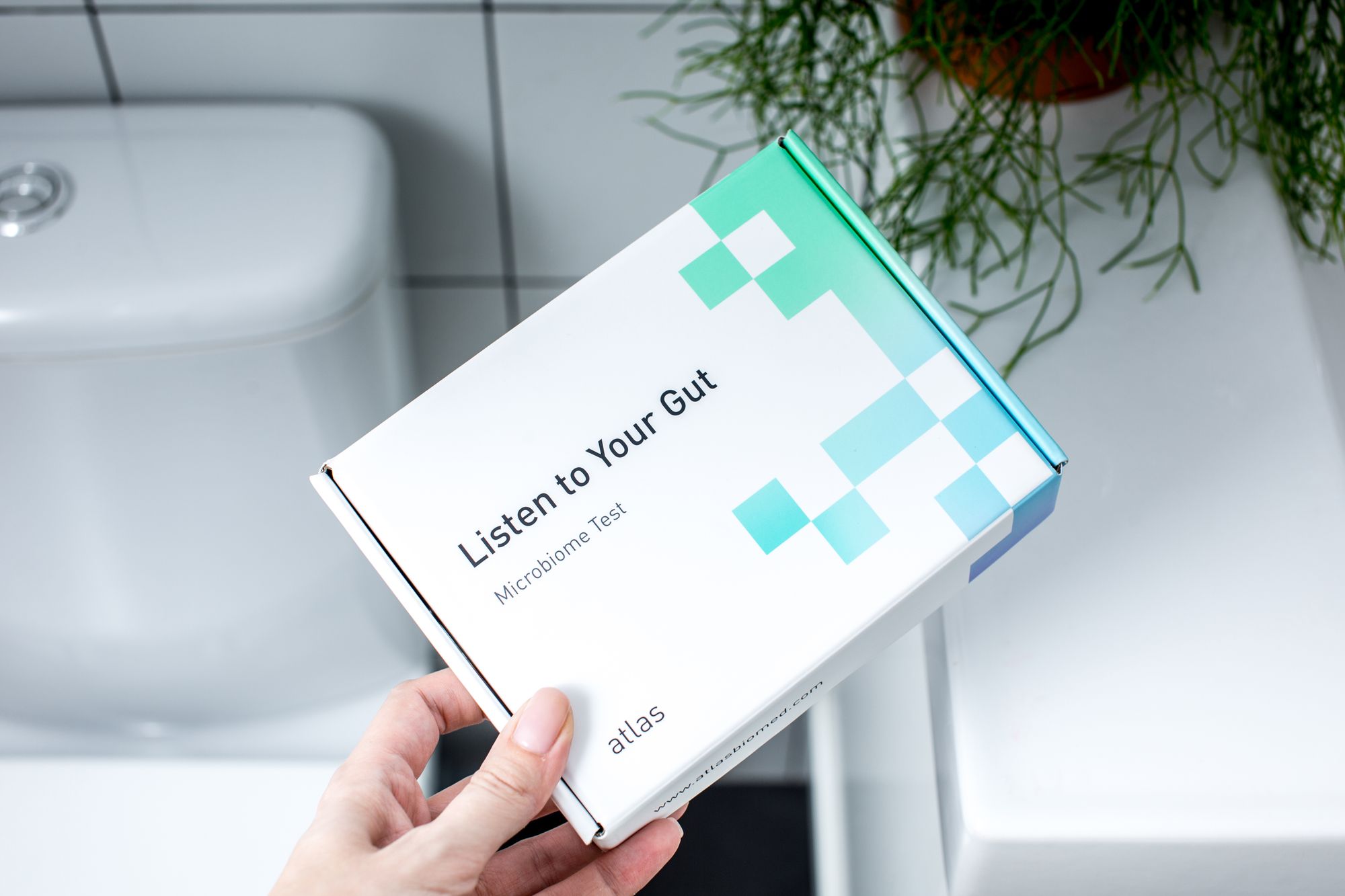You can get a gut microbiome test delivered to your door every three months to track your progress. But is it worth the money?
Your gut is home to a whole ecosystem of bacteria, called the gut microbiome, that perform a wide range of tasks for your health and wellbeing, but they are very sensitive to changes in your lifestyle, health, diet, and even stress.
When you take our test, you get a snapshot of your gut microbiome in its current state that can reveal a number of secrets about its wellbeing and what it’s doing for you.
In some cases, it might even show inadequacies in terms of diversity and balance between different types of bacteria, both of which can have knock-on effects for your health. If you have too much of some microbes, or not enough of others, your gut microbiome might be working against you.
With a microbiome subscription, you can track the effects of changes to your diet based on your food recommendations to see where you’re making progress.
This works for people who already eat a healthy, high-fiber diet, but also those who may have chronic digestive problems, high stress, or want to make better food choices.
What can you learn from a single gut microbiome test

The Atlas Biomed Microbiome Test creates a snapshot of your gut from the moment you collect your stool.
If you’ve taken antibiotics or undergone surgery, we recommend waiting three months to give your microbes time to recover and stabilise in order to get an accurate baseline of what your microbiome looks like when it’s not seriously disturbed by external influences.
We use DNA sequencing technology to extract the genetic information from the bacterial cells in your sample. These data are then analysed by our interpretation algorithm using advanced scientific modelling techniques to evaluate what bacteria are in your microbiome and at what levels.
This whole process was designed and is overseen by our gut microbiome research team based on reliable scientific findings in this field. This same team of scientists and bioinformaticians have many published papers to their name and are actively engaged in groundbreaking studies.
Here’s what you can discover from your first microbiome test results.
| Overall diversity | Probiotic & beneficial bacteria | Dietary fiber | Vitamin & butyrate levels |
| Disease protection | Tailored food recommendations |
Bacterial diversity
A healthy gut microbiome has a broad range of different microbes. Different bacteria perform different jobs and work together to maintain stability in the community, deter pathogens, train the immune system, and produce beneficial substances.
Some transform prebiotic fibers directly into important compounds like butyrate that nourish the gut directly. Others produce substances that feed other good bacteria. It’s also not uncommon for bacteria to accomplish several different tasks at once.
We use the Chao index to evaluate the diversity of bacteria in your gut with a simple traffic light rating (red/low - yellow/average - green/high). Your results also show where you stand compared to our other users.
Butyrate
Butyrate is an essential short-chain fatty acid that is produced by your gut microbes, especially by those of the Firmicutes phylum (a classification of bacteria).
This substance is a vital source of fuel for colonocytes, the cells of your gut lining, and it helps maintain the integrity of the gut barrier. Butyrate can also prevent inflammation, modulate the immune system, and even suppress some types of cancerous activity.
Our test identifies the butyrate-producing bacteria in your gut and uses this information to estimate the butyrate production levels of your microbiome.
Vitamins
Many beneficial gut bacteria produce vitamins that contribute to the nutrient requirements of the body. Previously, it was thought that water-soluble vitamins could only be absorbed by the small intestine, but now we know that the colon can also absorb these important nutrients.
Gut bacteria synthesise 8 different vitamins, mostly B vitamins (B1, B2, B3, B5, B6, B7, and B9), but also vitamin K. These nutrients participate in essential processes helping to maintain brain, bone, organ, and cell health.
Your results assess your microbiome’s potential to make vitamins based on the specific types of bacteria in your sample and their abundance in the ecosystem.
Probiotics in your gut
Bifidobacteria, Lactobacillus (lactic acid bacteria), and Lactococcus that live in the gut are considered to be “probiotic bacteria”. They are especially beneficial bacteria in the gut that contribute to the overall health of the ecosystem, colon, and body.
These microbes help the colon to achieve the right level of acidity to deter pathogenic bacteria, but also to make it comfortable for the good ones. They help regulate the immune system, prevent inflammation, and produce beneficial substances that nourish the gut and other bacteria.
Our test evaluates the levels of probiotic bacteria in the gut, and recommends specific probiotic strains of bacteria to help bolster your gut health.
Beneficial microbes
These microbes perform one or several tasks that contribute to your health. We’ve subdivided our classification of beneficial microbes based on their specific functions.
There are three categories of beneficial bacteria: butyrate producers, obesity and weight gain prevention, and unique characteristics (like a rare ability to break down specific compounds).
Your results indicate your levels of beneficial microbes, describe their functions, and highlight areas for improvement.
Dietary fiber
Dietary fiber is essential for human health, and that’s also because it plays a vital role for gut microbiome health. In fact, the body can’t digest fiber. Instead it is a source of nourishment for beneficial microbes that scientists call “prebiotics”.
Fruit, vegetables, whole grains, legumes, seeds, and nuts are the main source of prebiotic dietary fiber and other non-digestible carbohydrates that appeal to microbes.
Your results indicate how well your gut microbes can break down dietary fiber (that they turn into beneficial substances) and what types of fiber you might struggle with.
Disease protection
Research shows that many diseases are related to substantial changes in the composition of the gut microbiome. These may be unusually high or low abundance of one type of bacteria, or specific patterns in the composition of the ecosystem.
Your level of disease protection is assessed by comparing the composition of your gut microbiome to that of reliably researched patterns for five common, chronic diseases.
Our test evaluates how well your microbes can protect you from obesity, atherosclerosis (hardening of the arteries), diabetes type 2, Crohn’s disease, and ulcerative colitis.
Personalised food recommendations
Eating a variety of plant-based foods provides essential sustenance (prebiotics) for the microbes that help protect your health. In the same manner, consuming high levels of refined sugar, meat, and fats can nourish the wrong ones.
In order to achieve and maintain good microbial diversity in the gut, it’s important to get a minimum of 30g of fiber per day from many sources, because different bacteria feed on different dietary fibers.
Your results include personalised food recommendations to help balance your microbiome and encourage the abundance of specific beneficial and probiotic bacteria in order to enhance all the parameters mentioned above.
Microbiome type
Current research indicates that human microbiomes fall into 3 broad categories called "enterotypes". These groups reflect general trends in nutrition and local food heritage.
Our test reflects where you lie on the scale of three broad eating styles: the Western diet (meat, fat, refined sugars), starchy foods (grains, potatoes, bananas), and vegetarians (high fiber, low sugar, low meat). Your results also indicate what nationality your microbiome composition is most similar to based on current large-scale population studies.
What are the benefits of MB subscription
Regular microbiome testing can benefit anyone who is seeking to improve their overall health, find practical strategies to enhance their diet, or indeed retrieve sustainable balance if they’ve had health problems.
Healthy people can benefit from checking in from time to time with their gut microbes, and can even enhance their well-being and improve their scores on the parameters above by following the food recommendations.
High stress lifestyles can receive support from their gut microbes. A balanced microbiome can reduce inflammation (that is reliably linked to depression), improve stress resilience, and even reduce anxiety. Sudden, acute episodes of stress can have an impact on your gut microbiome, but taking another microbiome test can help address unplanned disturbances by changing up your diet.
Adopting a healthier diet for digestive and/or general health, achieving a healthy BMI, or for self-esteem is another way in which monitoring your gut microbes help. Several types of bacteria are directly associated with weight gain prevention, but also digestive health. Our food recommendations change based on every fresh test to provide you with guidance on what to put on your plate.
Digestive problems that are considered functional, like gas, cramping, constipation, and other symptoms associated with conditions like IBS are also linked to microbiome health. Achieving balance in the bacteria that inhabit your gut can enhance the integrity of the gut lining by producing butyrate and nutrients, but also encourage beneficial bacteria to take the place of others that may be contributing to your discomfort.
Photo by Brooke Lark / Unsplash
If you’re switching from a diet of processed foods, high in sugar, meat and/or fat, or if you’ve undergone several courses of antibiotics, it may take longer to achieve balance in your gut microbiome. But there’s no way of knowing without a gut microbiome test.
What makes personalised microbiome testing unique is the technology employed. We use DNA sequencing to identify the bacterial genes in your stool - this allows us to accurately identify current levels in your gut and abundance in comparison to other microbes.
This is not something that can be guessed, and you can’t eyeball it with a quick peek at your poop in the toilet. It can’t even be done with the traditional Petri dish method used by labs to identify bacterial infections like Salmonella.
That’s because most of your gut microbes don’t like oxygen (scientists call this an "aerobic environment"). Most of them can only survive in anaerobic environments (with no oxygen) like your colon.
So the only way to dispel the mystery workings of the symbiotic microbial ecosystem in your gut, and see if your food recommendations are having the expected effect, is to get tested. Follow the recommendations. Repeat.
You can track your progress over time in your personal account with comparative charts of changes in the different health-related categories listed above. This feature is particularly relevant because you can see how the food and probiotic recommendations are taking effect.
☝️Important☝️ Your personalised recommendations are based on a diet that achieves the minimum recommended daily allowance of fiber from your food (30g). This includes fiber from the foods recommended in your results.
How the microbiome subscription works
We’ve designed our subscription process to make it easy for you from start to finish (literally). When you go to the purchase page on our website, you just have to tick the subscription box.
Once you’ve done that, we’ll send you a test every three months. Each test is charged individually upon delivery of the test to your door using the banking details for the initial payment.
All you have to do is collect the sample (following the instructions) and send it back in the pre-stamped and addressed envelope. We notify you when your new results and recommendations are online.
And if you decide you’ve had enough, that's fine, because we don’t believe in locking people into a fixed number of purchases. That’s not cool. So should you decide to cancel (or update your payment method), you can do so at any time by sending us an email to [email protected].

















